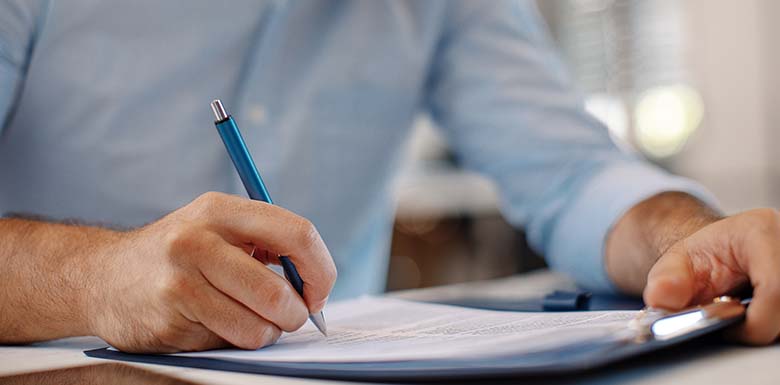April 27, 2023
Can I File a Lawsuit if I Sign a Liability Waiver?
By Jonathan Damashek
Posted in

Liability waivers are common in instances where a company wants to protect itself from being held accountable if an individual suffers injuries under certain conditions. Waivers are so commonplace that many people do not even read them before signing.
If you suffer injuries or damages caused by someone else’s negligence but previously signed a liability waiver, you may be wondering what legal options may be available to you. Fortunately, you may be able to pursue your case against the liable party.
What Is a Liability Waiver?
A liability waiver, also commonly referred to as a release form, is a legally binding document that individuals sign when they accept the risk of participating in an activity or event.
They are essentially waiving their right to sue a company for liability when they suffer injuries or damages due to inherent dangers associated with the activity or event. Some common instances in which you might be asked to sign a liability waiver include:
- Using a public amusement facility
- Swimming in a public pool
- Going to the gym
- Other miscellaneous business liability waivers
Liability waivers are designed to protect businesses and companies from being sued when individuals suffer injuries or losses associated with inherently risky events.
What Is Negligence?
When you agree to sign a liability waiver, you are saying you will not file a lawsuit against the business or entity responsible for any injuries you may endure because of their negligence.
There are two types of negligence you should be aware of, including:
- Ordinary negligence – in most liability waivers, ordinary negligence refers to the company or individual’s failure to maintain the safety of the premises through failure to make necessary repairs, failure to install security measures, failure to hire skilled employees, or through a lack of intent.
- Gross negligence – Gross negligence refers to the company or individual’s blatant and willful disregard for the safety of others.
Your personal injury lawyer in New York will be responsible for proving negligence based on a preponderance of the evidence. This involves showing that:
- The defendant owed you a duty of care
- The defendant made a decision or did not take action, thereby breaching their duty of care
- The defendant’s action caused your injuries or damages
- You suffered damages or injuries because of the defendant’s conduct
How Do You Start a Personal Injury Claim after Signing a Liability Waiver?
If you have previously signed a liability waiver and subsequently suffered injuries or damages, you may be wondering what legal options are available. It is important to note that even if you signed a liability waiver, you might have grounds for a negligence lawsuit if the liability waiver is not enforceable.
Liability waivers may not be enforceable if New York State law does not allow for liability to be waived for a particular activity or event. For instance, construction companies cannot legally absolve themselves from liability by having their construction workers sign liability waivers.
If a construction worker suffered injuries due to their employer’s negligent actions, even if they signed a liability waiver, they may still have grounds for legal action against their employer.
You may also have the opportunity to pursue a personal injury claim after signing a liability waiver if the person signing the liability waiver was not made clear of the intent of the waiver. You can expect the defendant to attempt to escape financial liability by trying to enforce your liability waiver.
However, your New York personal injury attorney will be prepared to introduce compelling evidence that shows the unenforceability of the liability waiver or the negligence or gross incompetence of the defendant.
To start your personal injury claim after signing a liability waiver:
- Begin by contacting your personal injury attorney
- Bring a copy of your signed liability waiver to your attorney for review
- Determine whether the liability waiver is enforceable
- Conduct a thorough investigation into liability, falls, and negligence
- Quantify your damages to calculate the value of your claim
- File claims with the insurance company and prepares to pursue a civil claim against the liable party
Call HKD for Help with Your Personal Injury Case
If you have signed a liability waiver and have concerns that you may not be able to pursue legal action against the liable party, do not hesitate to contact an experienced New York personal injury lawyer at Hecht, Kleeger & Damashek, P.C.
Our firm proudly offers no-cost, risk-free consultations to personal injury victims across the state of New York. Take advantage of this opportunity when you call us at (212) 490-5700 or complete our convenient contact form to get started on your case as soon as today.